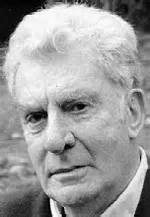
Robert Starer
ROBERT STARER (b. Vienna, Austria in 1924; d. Kingston, NY, USA 2001) entered the Austria State Academy of Music at the age of 13. Soon after Hitler's annexation of that country, he went to Jerusalem and continued his studies at the Palestine Conservatoire. During World War II, he served with the Royal British Air Force. In 1947, he came to New York for post-graduate study at the Juilliard School and also studied with Aaron Copland at Tanglewood in 1948. He became an American citizen in 1957. He has taught at Juilliard from 1949 to 1974 and at Brooklyn College and the Graduate Center of the City University of New York from 1963 to 1991. He was named a Distinguished Professor in 1986. Among his honors are two Guggenheim Fellowships and grants from the National Endowment and the Ford Foundation. He was elected a member of the American Academy of Arts and Letters in 1994, awarded the Medal of Honor for Science and Art by the President of Austria in 1995, an Honorary Doctorate by the State University of New York in 1996 and a Presidential Citation by the National Federation of Music Clubs in 1997. In a 1994 review of Starer's piano music, Alex Ross of The New York Times wrote: "When history books are written, Mr. Starer will probably land somewhere in the great open middle of American compositional tradition. His language is sometimes dissonant and even 12-tone in orientation, but it is fundamentally consonant beneath the surface, and his liking for open intervals puts him a shade closer to Copland than, say, to Elliott Carter. Among other qualities, he has a certifiable gift for melody." Starer had over 75 of his compositions published in his lifetime by several respected houses throughout the world. His works spanned from operas to ballets and many orchestral and instrumental pieces. He was also the author of two books on rhythm that are widely used by music students still in use today. Starer’s memorial service included a performance of the composer's last work, "Evening," for soprano and piano, completed just two days prior to his death on April 22, 2001. Robert Starer’s fellow composer and world-reknowned director Michael Isaacson remarked upon his passing: "We lost a giant in Robert Starer. He was a giant in the field. Not only was he a great artist, he was also a great role model. We will miss him terribly."
Titles:
- 1987 R00831 – Cello Concerto
- 1985 R00832 – Elegy
- 1992 X503006 – Episodes
- 1965 B391202 – Fanfare, Pastorale and Serenade
- 1996 X505017 – Five Miniatures
- 1996 X151016 – Five Preludes
- 1999 X110017 – Flutemagic from “Music for a Summer Afternoon”
- 1982 R00835 – Kli Zemer for Clarinet Quintet
- 1988 R00836 – Mizmor l’David (Psalms of David)
- 1999 X642503 – Music for a Summer Afternoon for Flute, Violin, Viola and Cello
- 1992 X652502 – Quintet for Clarinet and Strings
- S815102 – Remembering Felix for Narrator, Cello and Piano
- 1981 X412005 – Sonata for Two Pianos
- 1996 X504057 – String Quartet No. 3
- 1985 S081001 – To Think of Time for Soprano and String Quartet
- 1985 S410003 – Twilight Fantasies
